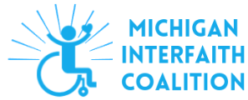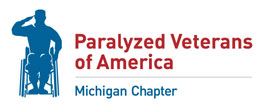What Are Public Acts 21 and 22 of 2019?
PA-21 is the main law that reformed Auto No-Fault Insurance in Michigan. This act introduces disastrous fee schedules (45% pay cuts to providers), attendant care limitations (56-hour limit for families), and several loopholes for insurance companies to exploit. PA-22 deals mainly with reforms to the type of insurance people can buy – essentially allowing Michiganders to save a few dollars in their insurance bill in exchange for extremely limited coverage… thus gutting No-Fault. Importantly, neither law includes a retroactive clause, but the wording specifically grandfathering survivors in was quietly removed from its final version before passage.
Text of PA-21 and PA-22
- Copy of the official act: 2019-PA-0021 | 2019-PA-0022
- History of the acts: legislature.mi.gov
Summary & Analysis
45% Cuts
Cuts payments to care providers by half
Providers are only able to bill a percentage of Medicare rates, or if there isn’t one, for 55% of what they were billing in 2019. Since most post-acute care such as home care, certain therapies, wheelchair equipment, etc. is not covered by Medicare, this in effect cuts payments to most providers by half. When this became effective in July 2nd, 2021, several providers started going out of business or stopped accepting auto patients, effectively destroying the post-acute care industry in the State.
56 Hour Limit
Family provided attendant care (Home Care) is limited to 56 hours per week, for the whole family combined
Something unique to Michigan was the ability for family members to leave their jobs to become full-time home care providers for injured loved ones. For example, a mother could take care of her son, or a wife could take care of her husband, with activities ranging from dressing to toileting to wound care and ventilator care, day and night. This allowed families to stay together and not have a stranger in their home. The reform capped this care at 56 hours per week, or the equivalent of 8 hours per day, forcing families to care for their loved ones without pay, as they cannot find home care agencies to do the other 112 hours per week. (Most shutdown or stopped taking auto patients.) Some families had to ship their loves ones to nursing homes out of state, others are spending down their lifetime savings, and yet others have now lost their homes. All are stressed, desperate to find care, and uncertain of their loved one’s future.
Retro active
No Grandfathering in for existing survivors
Michiganders have paid a fee (not a tax) in their insurance premiums to go towards the catastrophic fund, managed by MCCA (a secret group of insurers with no oversight and shielded from Freedom of Information Act requests). This fund pays for care after a catastrophic accident, for any reasonable and necessary services after the first half million. (For most spinal cord and brain injury survivors, that half million is quickly spent within the first 1-4 weeks of an accident). Michiganders who were in serious accidents and have been depending on this fund – all paid for by their MCCA fees – were guaranteed care for life under their auto policies, that is, until this reform ripped it away. Although the law does not specifically say that it is retroactive, insurers and Governor Whitmer’s administration, including her insurance regulator and attorney general, continue to argue in court that it is, and thus survivors from accidents before 2019 are now subject to the cuts imposed by this reform. The text that specifically grandfathered them in was intentionally and quietly removed before passage without the knowledge of most legislators.
secret
Passed in secrecy without hearings
This reform was passed at 2:30am, without giving stakeholders such as doctors and survivors a chance to participate in hearings. This reform was previously put to a State-wide vote – twice – and two times was rejected by Michiganders at the ballot box. Yet it was passed in secrecy and urgency in 2019 by legislators from both parties, with input only from insurance companies. (More at silentcrash.net) May loopholes in the text have allowed insurers to deny and delay benefits in an unprecedented scale, with some providers going 3 months or longer without payment and families being forced to work for less than minimum wage.
Important excerpts:
(2) SUBJECT TO SUBSECTIONS (3) TO (14), A PHYSICIAN, HOSPITAL,
25 CLINIC, OR OTHER PERSON THAT RENDERS TREATMENT OR REHABILITATIVE
26 OCCUPATIONAL TRAINING TO AN INJURED PERSON FOR AN ACCIDENTAL BODILY
27 INJURY COVERED BY PERSONAL PROTECTION INSURANCE IS NOT ELIGIBLE FOR
1 PAYMENT OR REIMBURSEMENT UNDER THIS CHAPTER FOR MORE THAN THE
2 FOLLOWING:
3 (A) FOR TREATMENT OR TRAINING RENDERED AFTER JULY 1, 2021 AND
4 BEFORE JULY 2, 2022, 200% OF THE AMOUNT PAYABLE TO THE PERSON FOR
5 THE TREATMENT OR TRAINING UNDER MEDICARE.
6 (B) FOR TREATMENT OR TRAINING RENDERED AFTER JULY 1, 2022 AND
7 BEFORE JULY 2, 2023, 195% OF THE AMOUNT PAYABLE TO THE PERSON FOR
8 THE TREATMENT OR TRAINING UNDER MEDICARE.
9 (C) FOR TREATMENT OR TRAINING RENDERED AFTER JULY 1, 2023,
10 190% OF THE AMOUNT PAYABLE TO THE PERSON FOR THE TREATMENT OR
11 TRAINING UNDER MEDICARE.
[…]
(7) IF MEDICARE DOES NOT PROVIDE AN AMOUNT PAYABLE FOR A
8 TREATMENT OR REHABILITATIVE OCCUPATIONAL TRAINING UNDER SUBSECTION
9 (2), (3),[(5),] OR (6), THE PHYSICIAN, HOSPITAL, CLINIC, OR OTHER PERSON
10 THAT RENDERS THE TREATMENT OR TRAINING IS NOT ELIGIBLE FOR PAYMENT
11 OR REIMBURSEMENT UNDER THIS CHAPTER OF MORE THAN THE FOLLOWING, AS
12 APPLICABLE:
13 (A) FOR A PERSON TO WHICH SUBSECTION (2) APPLIES, THE
14 APPLICABLE FOLLOWING PERCENTAGE OF THE AMOUNT PAYABLE FOR THE
15 TREATMENT OR TRAINING UNDER THE PERSON’S CHARGE DESCRIPTION MASTER
16 IN EFFECT ON JANUARY 1, 2019 OR, IF THE PERSON DID NOT HAVE A
17 CHARGE DESCRIPTION MASTER ON THAT DATE, THE APPLICABLE FOLLOWING
18 PERCENTAGE OF THE AVERAGE AMOUNT THE PERSON CHARGED FOR THE
19 TREATMENT ON JANUARY 1, 2019:
20 (i) FOR TREATMENT OR TRAINING RENDERED AFTER JULY 1, 2021 AND
21 BEFORE JULY 2, 2022, 55%.
22 (ii) FOR TREATMENT OR TRAINING RENDERED AFTER JULY 1, 2022 AND
23 BEFORE JULY 2, 2023, 54%.
24 (iii) FOR TREATMENT OR TRAINING RENDERED AFTER JULY 1, 2023,
25 52.5%.
[…]
(10) FOR ATTENDANT CARE RENDERED IN THE INJURED PERSON’S HOME,
20 AN INSURER IS ONLY REQUIRED TO PAY BENEFITS FOR ATTENDANT CARE UP
21 TO THE HOURLY LIMITATION IN SECTION 315 OF THE WORKER’S DISABILITY
22 COMPENSATION ACT OF 1969, 1969 PA 317, MCL 418.315. THIS SUBSECTION
23 ONLY APPLIES IF THE ATTENDANT CARE IS PROVIDED DIRECTLY, OR
24 INDIRECTLY THROUGH ANOTHER PERSON, BY ANY OF THE FOLLOWING:
25 (A) AN INDIVIDUAL WHO IS RELATED TO THE INJURED PERSON.
26 (B) AN INDIVIDUAL WHO IS DOMICILED IN THE HOUSEHOLD OF THE
27 INJURED PERSON.
1 (C) AN INDIVIDUAL WITH WHOM THE INJURED PERSON HAD A BUSINESS
2 OR SOCIAL RELATIONSHIP BEFORE THE INJURY.
3 (11) AN INSURER MAY CONTRACT TO PAY BENEFITS FOR ATTENDANT
4 CARE FOR MORE THAN THE HOURLY LIMITATION UNDER SUBSECTION (10).
[MCL 418.315, Worker’s Compensation Act, States:
Attendant or nursing care shall not be ordered in excess of 56 hours per week if the care is to be provided by the employee’s spouse, brother, sister, child, parent, or any combination of these persons.]
Several bills have been introduced in 2021 to fix the care crisis that this reform created, but none have received a hearing. Bi-partisan leadership at the House and Senate have blocked hearings, as have Insurance Committee leaders and the Senate Leader. These lawmakers have a moral obligation to fix the crisis they created but are refusing to act are listening only to the insurance lobby.
If all faith leaders and religious organizations in the State joined the Michigan Interfaith Coalition, we would represent the voices of a majority of Michiganders – almost 10 million of them – and could pressure legislators to take a moral stand and pass meaningful legislation immediately. We are advocating for a removal of the 56-hour attendant care limitation and the restoration of pre-2020 rates for all post-acute providers, including doctors, families, medical suppliers, pharmacists, therapists, and all those who care for survivors for a lifetime.



